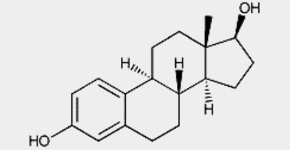
Estrogens are known to modify immunologic responses and the modulation of rheumatoid arthritis (RA) disease activity during pregnancy is well documented. However, whether physiologic replacement of estrogen and other hormones after menopause adversely affects RA outcomes is controversial. Here, Wallitt et al (Arthritis Care & Research 2008; 59: 302) explore whether postmenopausal hormone replacement therapy (HRT) increases the incidence or severity of RA in women enrolled in the Women Health Initiative (WHI) trials.
Methods
Women enrolled in the WHI trials, in which postmenopausal women were randomized to receive estrogen +/- progestin, were included in this post-hoc analysis if they self-reported a diagnosis of RA at any time during the trial and were prescribed antirheumatic medications. Women identified in this way were followed for the development of RA (in women without baseline RA) or worsening of subjective symptoms (in women with prevalent RA) using the SF-36 and a semi-quantitative ordinal symptom scale (0-3) for joint pain and hand/foot swelling. Outcomes were compared for those receiving active therapy vs. those receiving placebo.
Results
Among 27,329 women enrolled, there were 63 prevalent and 105 incident cases of RA. RA cases were similar to non-cases in baseline demographics and overall comorbidity, but RA patients reported higher pain and hand/feet swelling scores. After an average of 5.6 years of follow-up in the estrogen + progestin and 7.1 years in the estrogen alone trial, there were no statistically significant differences in the incidence of RA for those treated with HRT vs. those treated with placebo, with no significant difference in effect noted for estrogen alone vs. estrogen + progestin. Physical component scores of the SF-36 improved in women with RA treated with HRT compared to worsening with placebo; however, these differences were larger accounted for by differences in demographics, smoking, anti-rheumatic medication use, and years since menopause. There were no significant differences detected in joint symptoms or reported pain for women with RA treated with HRT compared to RA women treated with placebo.
Conclusions
HRT does not appear to increase the risk of developing RA or worsen the severity of disease in women with prevalent RA.
Editorial Comment
This is the largest and only analysis of placebo-controlled trial data to address the question of HRT use and RA. Despite its size, there are still a relatively small number of RA patients, limiting the ability to make firm conclusions. In particular, the cumulative hazard of incident RA appears to separate in favor of women without a uterus taking estrogen alone after about 4 years of use; however, due to the small numbers of cases by this time period there were no statistically significant differences. Fewer post-menopausal women use HRT in recent years, largely due to the primary results of the trial from which the study reported here is derived. Regardless, these data appear to confirm that HRT use does not increase the risk of RA incidence or severity.
This study highlights the difficulty in using patient self-report of RA as a reliable measure, as far more women reported a diagnosis of RA than was feasible based on knowledge of the prevalence of RA in the population. While including only women using anti-rheumatic therapy improves the specificity, it still may misclassify women and has the potential to skew the results. This is particularly true in pharmaco-epidemiological investigations, such as this, where adverse effects of drugs can be diluted by just a small amount of misclassification—resulting in the appearance of no adverse effects of the drug when adverse effect actually exist.

Receive the Latest News from Johns Hopkins Rheumatology
Join our mailing list to receive the latest news and updates from Johns Hopkins Rheumatology.
